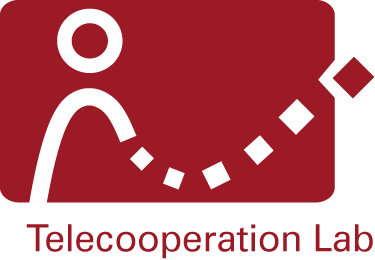Our research and teaching is devoted to Ubiquitous Computing in the Future Internet. We investigate information technology for humans who are surrounded by many networked computers anytime and anywhere, most of which are either embedded in the real world or worn or carried by humans.
Pervasive Computing, Smart Spaces (Products, Rooms, Homes & Enterprises, Cities & Communities) and Ambient Intelligence are related terms used in the literature. The envisioned scenarios demand advancements in several traditional IT disciplines that must be interwoven:
(1) Ubiquitous Internet & Distributed Systems [Cooperation]: on the lower layers (computer networks), we conduct research on, e.g., energy efficient, infrastructure-less sensor networks on service-overlay networks; on the systems level, we investigate middleware and software engineering for smart environments and smart cities, social networks (IPTV-augmented etc.), privacy respecting publish-subscribe systems, in-network processing of cooperative knowledge and big data;
(2) Ubiquitous Human Computer Interaction [Interaction]: in this field, we investigate novel interaction concepts for future mobile devices (rollable, foldable, glass-based, pico-projector-based), embodied and tangible interaction, and cooperative work settings – in particular based on tabletops;
(3) Ubiquitous IT Security [Protection]: Here, our research concentrates on resilient critical infrastructures (as part of future energy networks, emergency response networks, Internet-of-Things-and-Services etc.), ubiquitous privacy & anonymity, and computational trust (as a means for assessing the trustworthiness and quality of data, services, humans, IT security provision, cloud providers, organizations, products and the like).
Details about the organization and a description of our research can be found on our research pages.
We invite you to share our vision as you visit our Web pages.
The history and current research activities of our Lab are described in our recent brochure. (opens in new tab)










